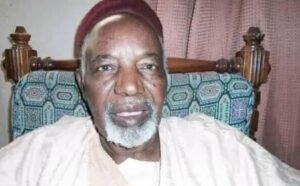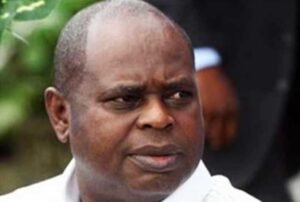Impeachment in Nigeria is the constitutional process for removing elected officials like the President, Vice President, Governors, and legislative leaders before their term ends.
The legislature initiates it based on allegations of gross misconduct, as defined by the 1999 Constitution (as amended).
- Section 143 covers the impeachment of the President and Vice President
- Section 188 applies to Governors and Deputy Governors
- Section 92(2)(c) allows the removal of Speakers or Deputy Speakers with a two-thirds majority vote in state legislatures.
READ ALSO: Top Oil Fields In Nigeria And Their Location
What Constitutes Gross Misconduct?
Gross misconduct refers to serious violations of the Constitution or other grave offenses that can lead to the removal of a public official.
This concept is key to the impeachment process, forming the legal basis for proceedings against officials like the President, Governors, or legislative leaders.
Here are some examples of actions that can be considered gross misconduct:
1. Violation Of The Constitution
This includes actions that go against the Constitution, such as ignoring due process, violating human rights, or failing to uphold the rule of law.
2. Abuse Of Power
Using authority for personal gain or to harm others qualifies as misconduct. Examples include misusing state resources for personal projects, influencing appointments for personal benefit, or silencing critics through intimidation.
3. Financial Impropriety
Misusing public funds, embezzling money, or engaging in bribery fall under financial misconduct. Awarding contracts without proper bidding or inflating project costs for personal gain also qualifies.
4. Conduct Unbecoming Of A Public Officer
Public officials must maintain dignity. Actions like public scandals, inflammatory statements, or behavior that damages the integrity of the office are considered gross misconduct.
That being said, defining gross misconduct isn’t always straightforward. Political considerations and specific circumstances often influence decisions.
Legislative bodies and courts play an important part in determining whether an official’s actions meet the threshold for impeachment.
READ ALSO: Top 10 Oil Companies In Nigeria
Step-by-Step Process Of Impeachment In Nigeria
Here are the processes of impeachment in Nigeria for the President and the Governor:
1. Impeaching The President
The Nigerian Constitution, in Section 143, outlines the steps to impeach a President:
- At least one-third of National Assembly members must sign a written notice accusing the President of gross misconduct. This is submitted to the Senate President.
- The Senate President serves notice to the President and all National Assembly members within seven days.
- The President can respond, and the reply must be shared with all National Assembly members.
- Within 14 days, both chambers of the National Assembly must vote on an investigation. A two-thirds majority is required.
- If approved, the Senate President asks the Chief Justice to appoint a seven-member panel to investigate.
- The panel submits its findings within three months.
- If misconduct is confirmed, a two-thirds majority in both chambers can remove the President.
2. Impeaching A Governor
Section 188 of the Constitution outlines how a Governor can be impeached:
- At least one-third of the State House of Assembly members must sign and submit a notice of misconduct to the Speaker.
- The Speaker serves the Governor and all Assembly members within seven days.
- The Governor can respond, and the reply is shared with Assembly members.
- Within 14 days, the Assembly must vote on an investigation. A two-thirds majority is required.
- If approved, the Speaker asks the Chief Judge to appoint a seven-member panel.
- The panel submits findings within three months.
- If allegations are proven, a two-thirds majority vote removes the Governor.
Both processes follow similar steps.
The main difference is who handles them, which is the National Assembly for the President and the State House of Assembly for the Governor.
READ ALSO: Where Does The President Of Nigeria Live?
Notable Cases Of Impeachment In Nigeria
These are some cases that reveal the challenges of holding public officials accountable, especially Governors and other leaders.
1. Alhaji Balarabe Musa (Kaduna State, 1981)

Alhaji Balarabe Musa was Nigeria’s first impeached Governor. During the Second Republic, the NPN-controlled State House of Assembly removed him because his party, the PRP, held a minority. His impeachment exposed how political rivalries influence governance.
2. Ayo Fayose (Ekiti State, 2006)

Ayo Fayose was removed over the alleged mismanagement of public funds and accusations of involvement in serial killings.
3. Joshua Dariye (Plateau State, 2006)

Joshua Dariye was impeached for financial misconduct, including sucking public funds and money laundering.
4. Diepreye Alamieyeseigha (Bayelsa State, 2005)

Diepreye Alamieyeseigha faced impeachment over corruption, including theft of public funds and abuse of office.
5. Siminalayi Fubara (Rivers State, 2025)

The Rivers State House of Assembly moved to impeach Governor Siminalayi Fubara and his deputy, Ngozi Ordu, citing gross misconduct. However, a State of Emergency declared by President Bola Tinubu suspended them for six months.

